Boracay and Coronavirus (Covid-19)
- General Boracay Virus Updates
- Local Boracay environment
- Government Measures & Covid-19
- Local tourism today
- Fake News!
- Presidential Visit Cancelled
- Protecting from Covid19
- When to Stay Home
- When to be Worried
(Updated – March 12th 2020) There are no confirmed cases of The Coronavirus (COVID-19) reported on Boracay. There are however unconfirmed reports of the virus being detected in surrounding areas; it’s difficult to tell if this is a case of hysteria or slow confirmation from government agencies. Many countries have been slow to report the onset of the virus because it can (and has) caused economic complications & panic if done improperly. The epidemic has deeply impacted tourist travel to the island; fewer Taiwanese and Koreans are vacationing through the high season, and there have been no recent mainland Chinese arrivals. Local Philippines based airlines have voluntarily cut back on the number of flights outgoing from Korea & incoming to Caticlan or Kalibo.
Effects on the Local Tourism Environment
The spread of the virus is having an immediate effect on the local economy and environment. Businesses that were predominantly patronised by Chinese & Korean tourists have thus far suffered the most, with some being forced to close their doors or wildly scale back on services. Nightly hotel rates have come down significantly; from a vacationers perspective, it’s a good time to get budget-luxury accommodations. Some hotels are considering closure as an option to viably weather the storm. Sadly, many businesses have not fully recovered from closure or reconstruction due to road widening. This high season was a critical time to recoup the losses incurred in recent years. The flattening of arrivals in the 2020 high season means businesses will have to run lean over the low season, just to get by.
February & March is kite surfing season and the waters are much less crowded (many would say unfortunately so) with new riders. Various activities outlets and restaurants have started to offer enticing specials to incentivise more customers through the tourism downturn. Vehicle traffic is reasonable and local island transport isn’t hard to find, with wait times being low or non-existent. D’mall, Boracay’s once-thriving dining and shopping hub, seems to have fewer and fewer shoppers every day.
Preventing Coronavirus on Boracay
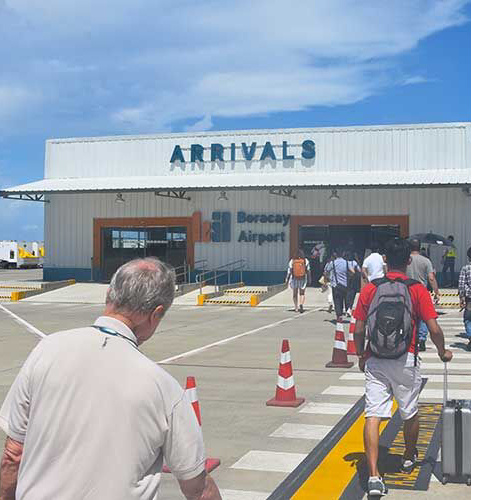
More stringent screening for arrivals
The national and local governments have both taken various actions to prevent the disease from taking hold in The Philippines. On a national level, travel bans have been put in place for disease hotspots, such as China and the few emergent regions in Korea.
On a local “Boracay” level, anyone found showing signs of the flu on arrival in Caticlan is now redirected via ambulance to a quarantine facility in Kalibo for observation and diagnosis.
Masks are available on the island and most restaurants and hotels have readily available hand sanitizer and encourage its use. Many businesses with public-facing employees now require the use of masks. Nationwide, there appears to be a shopping run on hand sanitizer.
In February, most Boracay locals were wary of the international virus outbreak but felt comfortable living on the island, with the overall situation in the Philippines being reported as under control. More recently, feelings are mixed.
Pushing on Local Tourism
With the lines of travellers from nearby foreign countries dwindling, the local and national governments have begun to focus on local tourism. Scheduled visits from government officials and tours of various Philippine island destinations have been planned with the intent of proving domestic commercial travel is more than just safe – It’s also extremely cost-effective in March and April (President Rodrigo Duterte has cancelled his Boracay Visit 3/12/20). Many tourism businesses are beginning to vie for guests, drawing from a shallow pool of new arrivals. Early AM March 12, the World Health Organization officially declared Coronavirus a pandemic. The fear from this alone will hamper tourism for an extended period of time.
Coronavirus Makes your Ears Fall off & Other Fake News
With varying degrees of concern that range from outright panic to mild alert, the ability for anyone to receive credible-looking information and forward it through a network of friends and contacts has proved challenging for the medical community. The reality is harder to digest – there isn’t a lot of hard factual data about Coronavirus. Doctors and scientists are working hard to figure it out, but it’s going to take time and more data to put together an effective virus profile. Medical institutions are now asking people to help fight the spread of (sometimes dangerous, sometimes funny) coronavirus misinformation by always checking with credible sources before forwarding to others; maybe it was an infographic on how to avoid catching the coronavirus, maybe there is a rumour that someone in the next Barangay has had a confirmed case. Currently, the most reliable way to verify or cross-examine any information is to go right to the source. Even credible news organizations have been fooled once or twice by not doing so.
For more information on the Coronavirus in general, where it’s spreading and up-to-date recommendations on safety and travel please bookmark the below credible websites:
https://www.doh.gov.ph/2019-nCoV
Philippines Department of Health – Virus Updates including Boracay area
https://www.who.int/emergencies/diseases/novel-coronavirus-2019/situation-reports/
World Health Organization Daily Updates on Coronavirus

President Rodrigo Duterte Cancels Boracay Visit

Late in the evening on March 11th, it was officially announced that Philippines president President Rodrigo Duterte would indefinitely hold off his tour of the top tourist destinations in the Philippines. The goal of the tour was to bolster local tourism in a tourist economy that has seen international arrivals plummet. One of the main events of the Boracay tour was a conference with local stakeholders.
Conferences have recently been cancelled worldwide by governments and private enterprise. The presidential cancellation could be due to reasonable precaution that’s quickly becoming a worldwide norm. In the midst of an official pandemic, it’s also a contentious time to be away from the seat of government.
Protecting Against Coronavirus on Boracay
“As we know, there are known knowns; there are things we know we know. We also know there are known unknowns; that is to say we know there are some things we do not know” -Donald Rumsfeld
A great deal about Coronavirus remains unknown. Many people are hoping that the transmission mechanics of the virus are slowed down or prevented by higher temperatures. On Boracay, it’s hot, sunny, and easy to believe that high temperatures will prevent the outbreak from reaching the island. In the future this may or may not be true; but it’s not currently factual. Preventative measures and good habits remain the number one recommended defence against contracting or spreading the virus.
Hand sanitizer & Alchohol rub vs. Washing Hands
There’s a reported run on Alchohol based hand rubs and sanitizers in various supermarkets across the Philippines. It’s important to understand the role hand sanitizer plays in protecting against the virus. Hand sanitizer is a great way to offer yourself some protection if outside doing daily tasks & travel. Stuck in public transport? It’s a great time to bring portable hand sanitizer. However, for home and office purposes, old fashioned soap and water is still the most effective way to free yourself of bacteria. Read the credible science on soap vs. sanitizer from the US Center for Disease Control.

When to Wear a Mask
Coronavirus attacks the respiratory system. Common sense would seem to dictate wearing a mask is a suitable preventative measure. And it is, with the right kind of mask. Everything else can actually leave someone worse off. The N95 type surgical facemasks can filter out 95% of foreign particles from reaching the wearer. These masks are highly uncomfortable, expensive, and in short supply. Off the shelf hospital masks people tend to see around Boracay can actually leave someone more susceptible to Coronavirus without proper training.
Simply, people shouldn’t wear a mask to protect themselves, they should wear it to protect everyone else. ‘Off the shelf masks’ can reduce the amount of material spread to others from someone who has become sick with the flu, Coronavirus, or anything else that uses saliva as a mode of transmission. Credible source from: doctors & medical institutions.
When to Stay Home
Amidst the outbreak, countries, provinces, states and corporations have begun to employ different policies to prevent outbreak inside of the workplace. For some businesses having a case of covid19 inside the office could be absolutely disastrous. For example, in the United States Google inc. has begun asking some workers to telecommute, Apple inc. has extended paid leave without question to employees who feel sick. Boracay businesses are hospitality based and this presents a particular problem. The industry as a whole has yet to succeed in telecommuting a hamburger to a table, a chef to a kitchen or a transport van to the Jetty Port (though we continue to try because that would be awesome). Individual company policies aside, it’s generally recommended to stay home with a fever & If not feeling perfectly healthy, wear a mask to protect others.
Should I be Worried?
Everyone should be careful, but emerging data indicates that certain people are more susceptible to experiencing severe complications from the Coronavirus. The elderly and those with pre-existing conditions are particularly vulnerable. Young adults probably shouldn’t lose too much sleep over the virus, economics aside. For those at low risk of complications following best practices to avoid spreading the virus is still important; it’s potentially parents or grandparents who are most at risk from accidental transmission. The below statistics are from Chinese and Korean sources. They were published between February 17th and March 12th. In the future, they could be incorrect or revised, as this is an emergent outbreak. Please check for updated sources if appropriate.
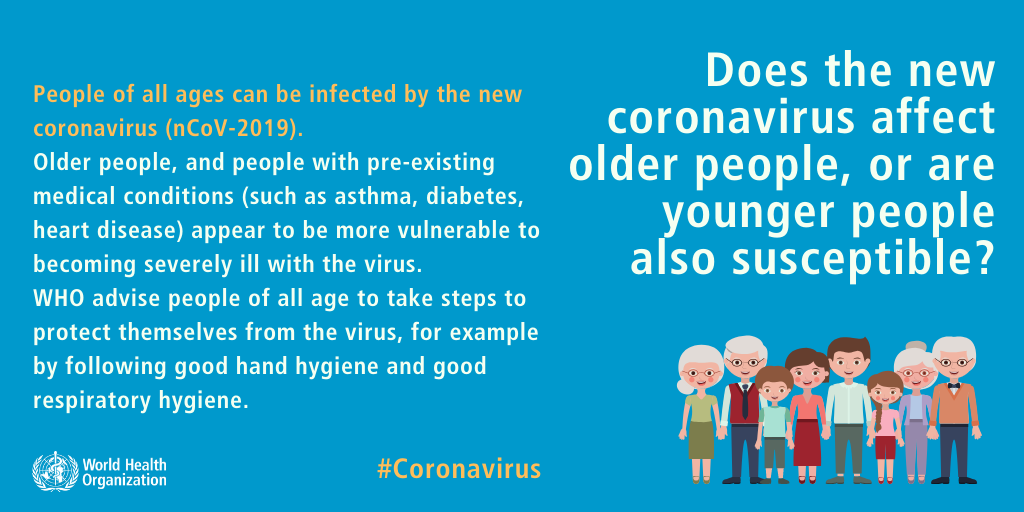


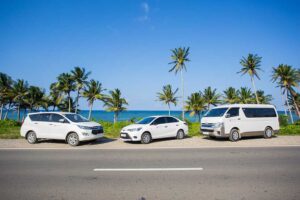
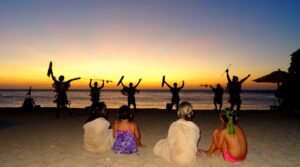
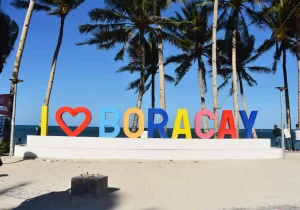
No Comments on Boracay Travel in the Age of Coronavirus